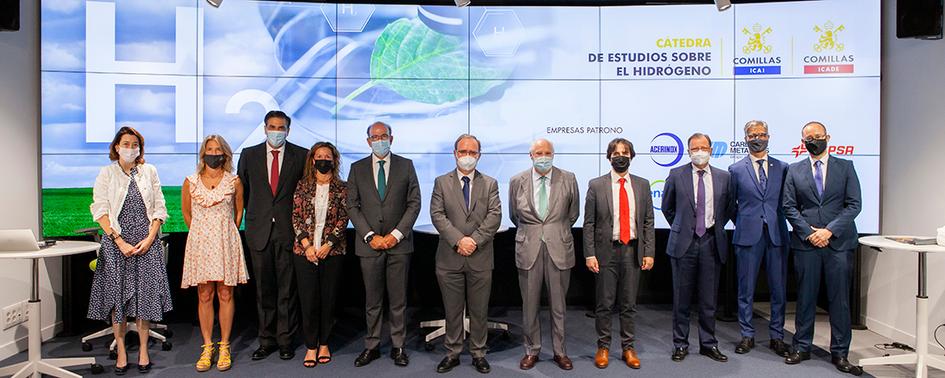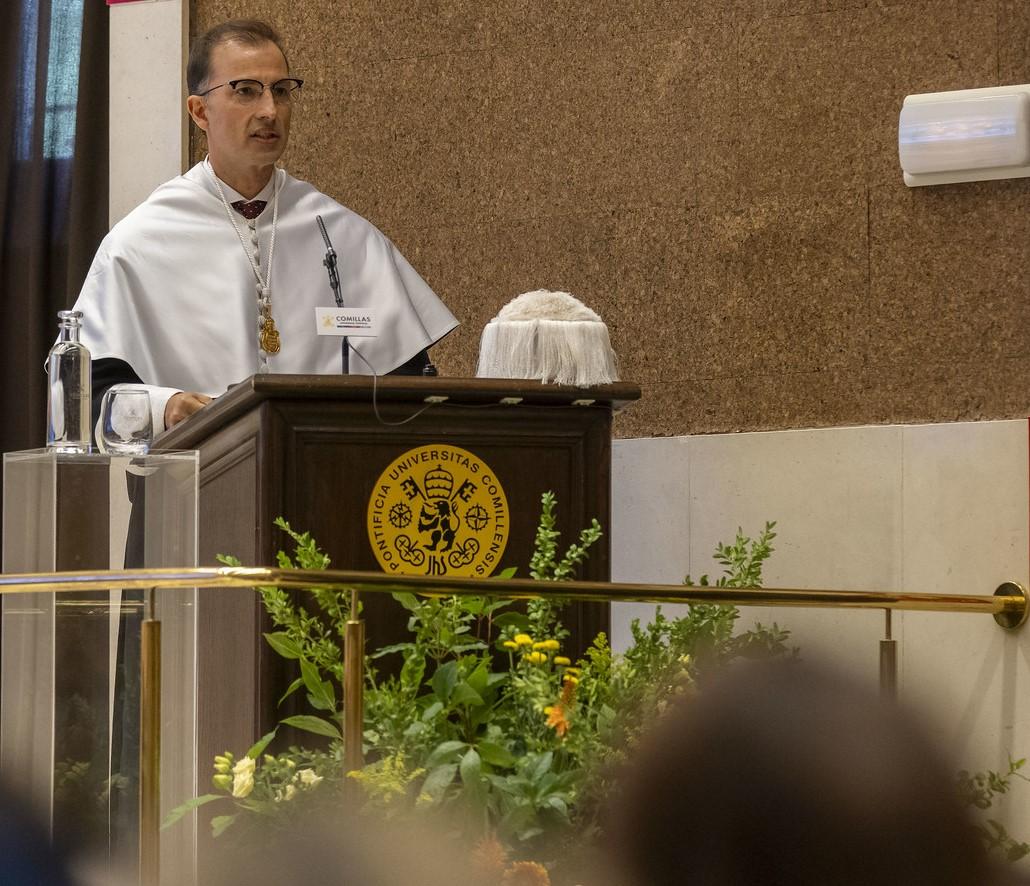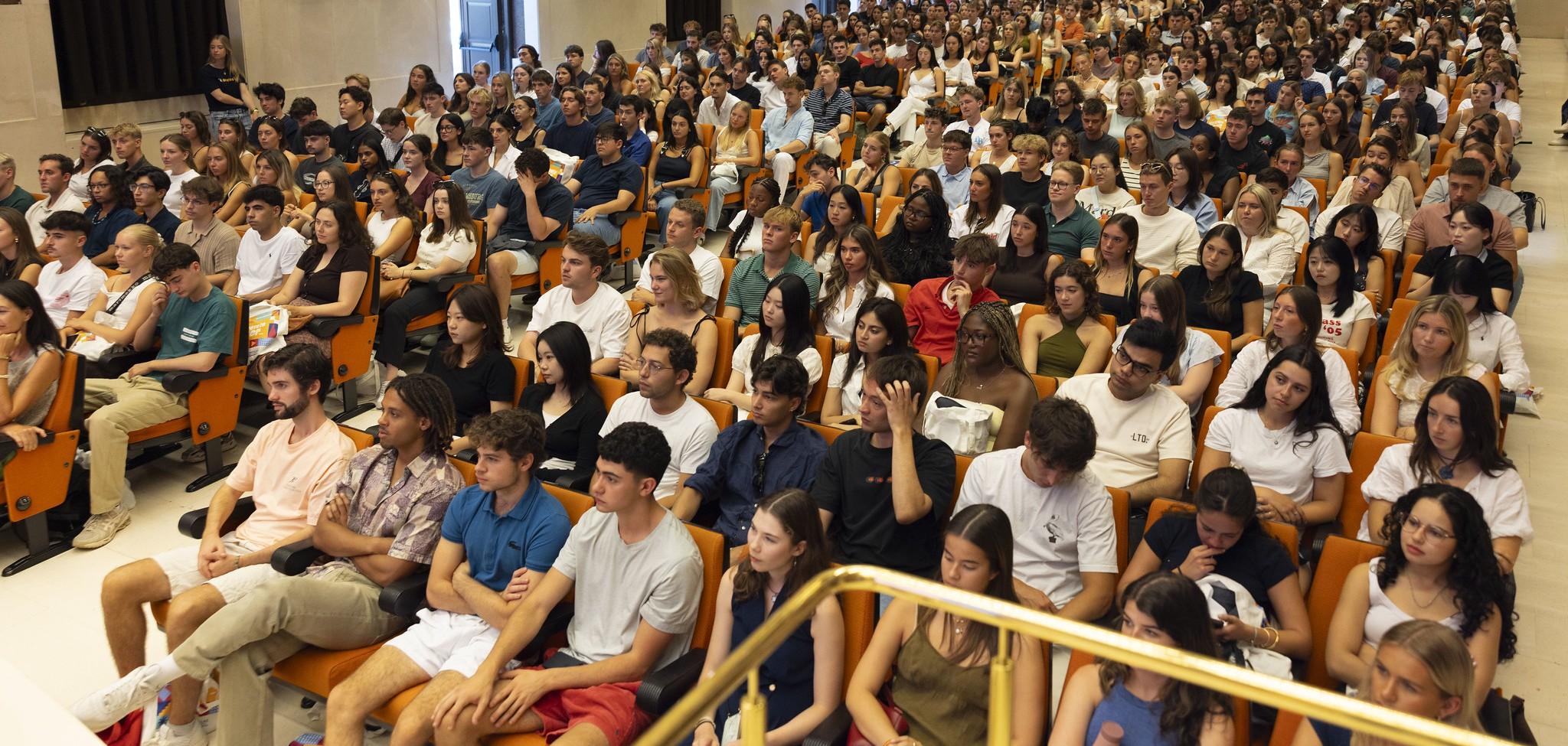Comillas creates the first Interdisciplinary Chair for Hydrogen
The Chair for Low Carbon Hydrogen Studies enjoys the participation of several sponsoring companies from different sectors

La Cátedra de Estudios sobre el Hidrógene es transversal (Comillas ICAI y Comillas ICADE) y cuenta con seis empresas patrono
14 July 2021
The Universidad Pontificia Comillas, in its efforts to study and contribute to the decarbonisation process of the Spanish economy, has just launched the Chair for Low Carbon Hydrogen Studies. This is an interdisciplinary research group - formed by the ICAI School of Engineering (Comillas ICAI) and the Faculty of Economics and Business Administration (Comillas ICADE) - whose objective will be to study the role of this energy vector and to draw up proposals for the development of business models and its necessary regulation.
Rafael Cossent, researcher at the Technological Research Institute (IIT), at Comillas ICAI, expert in regulation and economics of the electricity sector, and Co-Director of the Chair, deems necessary "a joint approach from the point of view of Engineering and Economics, due to the potential disruptive effect of hydrogen on the Spanish economy and the need to analyse it from a multidisciplinary perspective".
"Renewable hydrogen will emerge as a key asset in the transition process towards an inclusive and green economic model", says Isabel Figuerola-Ferretti, professor in the Department of Financial Management at the Faculty of Economics and Business Administration (Comillas ICADE), and expert in commodities and Co-Director of the Chair.
First level sponsoring companies
The Chair for Low Carbon Hydrogen Studies receives active participation from several sponsoring companies and institutions: Acerinox, Carburos Metálicos, Fundación CEPSA, Enagás, Management Solutions and Toyota, which contribute to promoting research and final applications of this fuel. Together they will cover the entire hydrogen value chain, from its production, transport and end uses, as well as relevant entities in areas such as financial aspects or new associated business models.
All parties agree that hydrogen is set to be a key vector in a decarbonised energy system, mainly because it enables the coupling between energy sectors and the long-term energy storage needed to manage the variability of renewable electricity production, and because it enables the decarbonisation of consumption that is technically and/or economically difficult to electrify, particularly in the industrial and transport sectors.
The Director of the Chair stated that "it will be the meeting point for all of the agents involved in the hydrogen value chain to contribute to the development of the renewable hydrogen sector in Spain by carrying out academic impact studies, compiling and analysing data, producing reports and organising events". In this way, the chair will contribute to the development and fulfilment of the European and Spanish green hydrogen strategy, which will enable the country to achieve climate neutrality and a 100% renewable electricity system by the year 2050 at the latest.
Related news

Pedro Fernández Castelao was in charge of giving the inaugural lecture in a ceremony attended by Mons. Luis Argüello, president of the Episcopal Conference

In an average hospital, more than 2,000 people can work in multiple services that require precise, efficient and human management.

With excitement, nerves and a great desire to begin this new stage, the first year students and the international students discovered everything that their experience at Comillas can be
